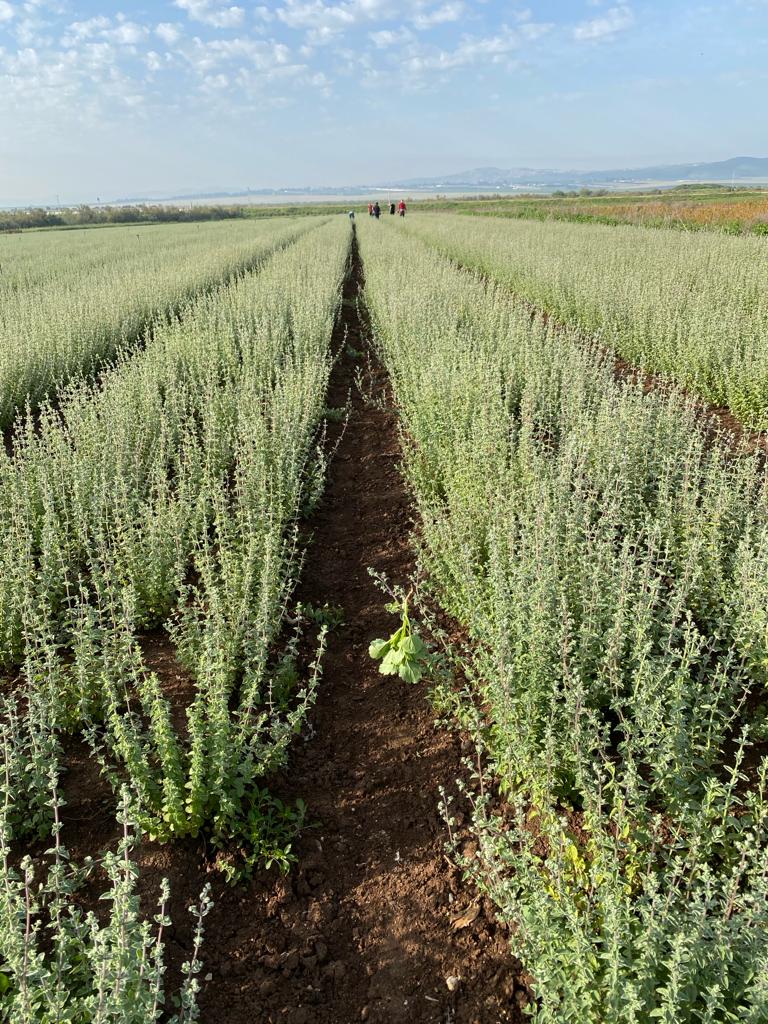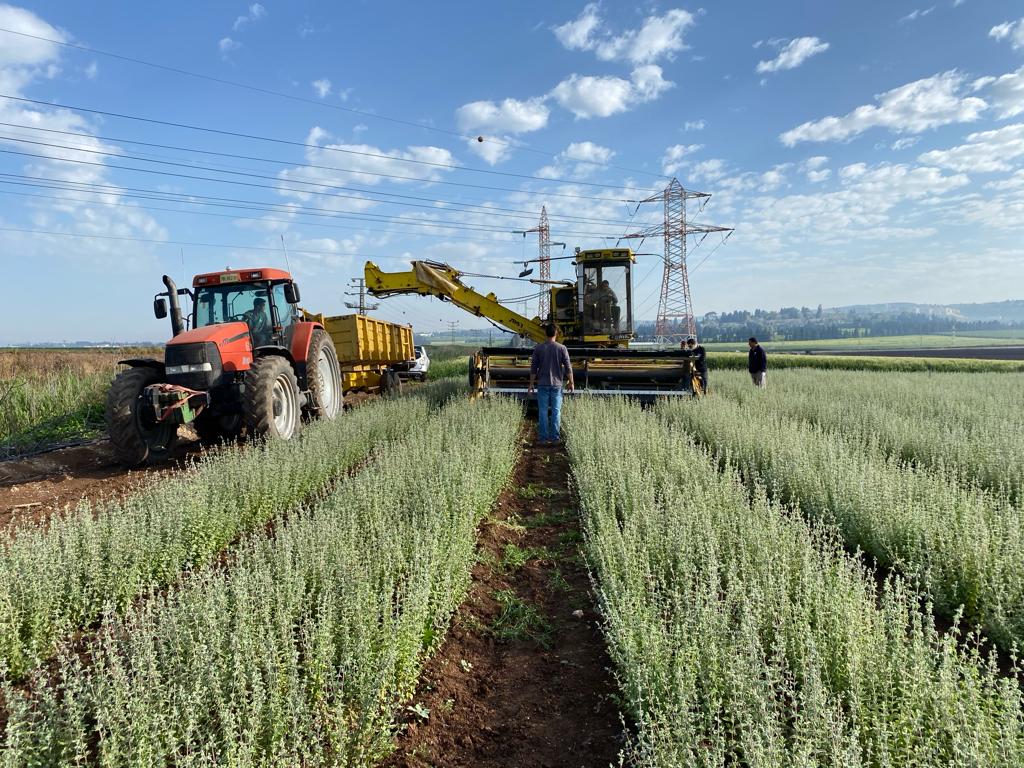Product: Za’atar (Sindyanna purchases high quality dried za’atar leaves, incorporating them into the za’atar blend produced at our factory in Kafr Kanna)
Producer: the Nakhly Company
Location: Shefar’am
When Sobhi (85) and Samia (78) Nakhly got married they never dreamed that their name would be linked forever to coffee beans. Both born in the Galilean village of Shefar’am, Sobhi worked as a taxi driver in the nearby city of Haifa while Samia took care of their growing family.
But fate sometimes makes its own plans, and it happened that Sobhi became interested in the coffee business. Manufacturers who brought with them the art of coffee roasting when they immigrated from Iraq to Haifa in the ‘70s. Sobhi learned from them and began roasting coffee at home. Until then, the people in his village bought raw coffee beans which were roasted by the women at home.
Sensing the trends, he understood that coffee consumption habits in Arab society were already changing. More people were working outside the village, as were the women who could no longer devote so much time to preparing traditional coffee.
With Samia’s help and encouragement, they began offering their neighbors roasted coffee that they prepared in a small room on the ground floor of their house. Slowly but surely, they gained an excellent reputation and more and more people preferred to buy their roasted coffee, instead of making it at home.
In 1973, the family established the first roasting house in the village, providing roasted coffee beans to the villagers and the surrounding area. Over the years, they also started grinding the coffee and selling it in sealed bags, a revolutionary step at that time. They then decided to use another technique which was unique back then — instead of providing the coffee in paper bags, they used aluminum ones, which they had to import from Italy.
The Nakhly Company, which is headquartered in Shefar’am, is a family business. Ra’ed Nakhly, their export and procurement manager, is the grandson of Sobhi and the son of Samer, who together with his brother Yussef, continued to develop the business.
From all the stories about the family’s history, Ra’ed cannot hide his admiration for Grandma Samia, affectionately called “Samo” by her loved ones. Without her entrepreneurial, intelligent, supportive and driving force “nothing would have happened”. It’s no wonder that she is the hero of the Nakhly story.
The values of the family, which haven’t changed since its inception, are the Nakhly Company’s DNA and the basis of its identity. Ra’ed proudly recounts that Sobhi and Samia were not willing to compromise on their values for the sake of commercial success. For example, early on they made an emotional decision to avoid replacing people with machines.
Sixty percent of the employees in the company’s facilities in Shefar’am and other locations in the Galilee, are young men and women from the village, who are able to save up for higher education by working there. After two years of physical work, they continue to college or university. When someone from the family needs medical treatment, they can always find someone who had worked in the family’s manufacturing plants before starting their medical studies, Ra’ed says with a smile.
Another guiding principle is to only deal with products related in one way or another to the local Arab Palestinian cuisine and the culinary tradition of the Galilee region. Whether it’s coffee, spices, condiments or snacks. Our goal, explains Ra’ed, is to improve the products sold in the local market, which currently lacks standards and regulations, to a level that will allow them to be sold in the commercial market.
“To this end, we aspire to achieve full control over the supply chain, from seed to fork – from seedling to successful harvest. This is to ensure that no harmful substances are used, and that the entire production chain complies with fair conditions for humans and land. My grandparents’ ethical code says: We don’t sell anything that we wouldn’t be willing to put on our own plate. Therefore, all our products must be of the highest standard and quality.”
For years, the company couldn’t find a reliable and high-quality source for the za’atar plant. They tried to buy it from farmers in Israel, the Palestinian West Bank and Turkey but couldn’t find a satisfactory source. So they ended up deciding to grow the za’atar themselves on land they acquired in Jezreel Valley (Marj Ibn Amer) near Nazareth. They planted za’atar seedlings of the local traditional variety, and today control the entire production chain of the herb, from the field to the package.
“We carefully selected our 30 dunams of land to make sure they are suitable for za’atar cultivation, without pollutants and without water runoff areas that could affect plant quality. Our za’atar is very unique and popular, and we are looking to expand our production capacity.”
Their za’atar fields, which are harvested in the fall and in the spring, are treated according to a protocol that meets international standards, without the use of harmful and prohibited substances. The fields are irrigated with drinking water to maintain leaf cleanliness. They even have a special machine that cuts the za’atar 15 cm above the ground to allow for regeneration and the growth of new branches.
They designed a warehouse especially for za’atar processing, where they have a team of four people. In the first stage, the plants undergo a drying process in hot air at body temperature (36Cº) for 24 hours. After the moisture is checked and they ensure that there is no risk of mold or bacteria development, the plants are transferred to the separation facility to separate the leaves from the stems. The stems are then discarded which is important because in many places they grind the leaves with the stems, thereby reducing the quality of the product.
The leaves go through a de-stoner machine that cleans all impurities or stones that may have come from the field. They are then passed through a calibrated system that sorts the leaves by size. The large and intact leaves are sold as a separate product for tea or baking. The remaining leaves are transferred to the packaging factory in Shefar’am where they are ground and used as raw material for traditional za’atar blends with sesame, sumac, salt, and olive oil.




